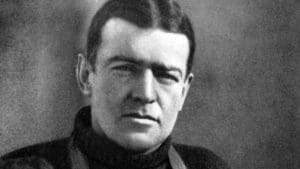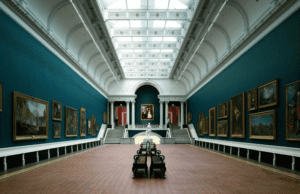Breton Language: Safeguarding the Rhythmic Pulse of Brittany’s Celtic Heart

Updated On: April 29, 2024 by Fatma Mohamed
The Breton language, a melodic Celtic tongue that has graced the rugged landscapes of northwestern France for generations, now stands at a pivotal crossroads. Once the vibrant medium of expression for a proud and fiercely independent people, this ancient language faces an uncertain future as the relentless tides of globalization and the dominance of the French threaten to drown out its rhythmic pulse.
Yet, in the face of such daunting challenges, a determined spirit of preservation burns brightly within the hearts of the Breton people, who steadfastly strive to keep their captivating Celtic heritage alive and thriving. From the windswept shores of the Côte de Granit Rose to the medieval cobblestone streets of historic towns, the Breton language remains a defiant beacon, a testament to the resilience of a culture that refuses to be silenced. This is the story of a linguistic treasure trove that holds the key to unlocking the rich cultural tapestry of a region that has long captured the imagination of the world.

So, let’s embark together on an exploration of Brittany’s linguistic jewel—a tale whispered through time yet seldom heard.
Table of Contents
The History and Status of the Breton Language
The Breton language boasts a rich history, interwoven with the very fabric of Brittany itself. Brought to the region by Celtic migrants from Britain in the 5th and 6th centuries AD, Breton flourished for centuries. It served as the language of nobility and the common people, with a vibrant literary tradition emerging. However, the tides began to turn with the rise of French dominance in the 13th century. French became the language of administration and education, slowly pushing Breton to the margins.
This was just a start, so let’s delve and learn more!
Revival Efforts
Breton faced a long period of decline due to French dominance. However, the 20th century saw a remarkable revival effort. Unified spelling systems were established, and Breton language instruction gained traction in schools. This resurgence continues today, with cultural organizations, media outlets, and educational programs breathing new life into the language.
People are working hard to bring back the Breton language. Many organisations are now teaching it in schools and online. Now, there is a place for it on local signs, too! UNESCO has labelled Breton as ‘severely endangered’.
Still, this hasn’t stopped the dedication of Brittany’s locals. They refuse to let their language die out like Cornish did in Cornwall. Around 250,000 people still speak Breton today.
Their endless fight keeps the unique Celtic heritage alive within France’s borders. There’s hope again for the Brittonic tongues, thanks to these efforts!
Geographic Distribution and Dialects

Brittany itself is geographically divided between Breton-speaking areas in the west and French-speaking areas in the east. Historically, Breton had four main dialects: Gwenedeg, Kerneveg, Leoneg, and Tregerieg. These dialects offer fascinating variations, showcasing the language’s internal diversity.
The Breton language is mainly spoken in the French region of Brittany. This Celtic language has its roots in the Southwestern Brittonic branch and belongs to the Insular branch of Celtic languages, along with Cornish, Welsh, Irish, and Scottish Gaelic.
While it was once widely spoken by over 90% of the population in lower Brittany, today there are only around 250,000 speakers left. Despite its decline, efforts are being made to preserve this important part of Celtic heritage through language revitalization programs and cultural initiatives.
It is estimated that there are still around 500,000 people who can speak or understand Breton today.
Official Status

Despite its historical and cultural significance, Breton remains unrecognized as an official language by the French government. This lack of official status presents hurdles for its wider use in education, administration, and media. However, regional authorities and Breton language associations continue to advocate for its official recognition.
The endangered status of Breton highlights the need for greater support and recognition from both the government and society at large. It is essential to preserve this Celtic heritage for future generations and maintain linguistic diversity in Brittany.
Preserving the Breton Language and Celtic Heritage in Brittany
The Breton language, a cornerstone of Brittany’s Celtic heritage, faces the threat of extinction. Yet, a strong movement is determined to keep its flame alive. Let’s explore the ongoing efforts to preserve Breton, its impact on Breton culture and identity, and why safeguarding this language is crucial.
Efforts to Promote and Teach the Language
The fight for Breton’s survival takes many forms. Bilingual education programs are flourishing, giving young generations the opportunity to learn Breton alongside French. Media outlets are increasingly incorporating Breton content, while cultural organizations host festivals, workshops, and language courses to foster a love for the language.
Language classes are offered in schools, universities, and community centres throughout Brittany. Additionally, there are online resources available for individuals who want to learn Breton at their own pace.
These efforts aim to empower the younger generation with the knowledge of their cultural heritage and ensure that the Breton language continues to be spoken for generations to come.
Political and Cultural Impact

The revival of Breton extends beyond classrooms and media. Street signs and official documents are bilingual in some areas, signifying a growing recognition of Breton’s importance. This linguistic resurgence fuels a sense of cultural pride and strengthens Breton’s identity. Local traditions, folklore, and music, often passed down through the generations in Breton, are safeguarded alongside the language itself.
The revival efforts for the language have gained traction over the years, with initiatives to promote and teach Breton in schools and communities. These efforts not only strengthen cultural identity but also highlight the importance of linguistic diversity in a globalised world.
As travellers, we can appreciate this rich heritage by immersing ourselves in the local culture, learning some basic phrases in Breton, and supporting organisations that work towards preserving minority languages like Breton.
Importance of Language Preservation for Cultural Identity

Language is more than just words; it’s the soul of a culture. Breton embodies the unique history and traditions of Brittany. Its preservation ensures the continuation of Celtic heritage, a vibrant tapestry woven with storytelling, music, and customs. Losing Breton would be akin to losing a vital piece of Brittany’s cultural identity.
However, with around 250,000 speakers today, it is classified as “severely endangered” by UNESCO. Language preservation not only helps to keep alive an important part of Celtic heritage but also ensures that future generations have a connection to their roots and can fully embrace their unique culture.
Conclusion
The Breton language stands at a crossroads. With continued dedication from educators, cultural organisations, and the Breton people themselves, its future can be secured. Bilingual education programs, increased media presence, and the celebration of Breton traditions are all vital for the language’s revival. As Breton flourishes, so too will Brittany’s Celtic heritage.
A Brittany where shop signs are bilingual, children chatter in Breton playgrounds, and traditional music thrives in the language of their ancestors – this is the vision that fuels the fight for Breton’s survival. Safeguarding this language isn’t just about preserving the past; it’s about ensuring a vibrant future for Brittany’s unique cultural identity. The rhythmic pulse of the Breton language can continue to echo through the heart of Brittany, enriching France and reminding the world of the enduring power of language.

FAQs
1. What is the endangered Breton language?
The endangered Breton language, part of the Celtic heritage in Brittany, France, is a unique dialect with its own grammar in the European mainland.
2. Where is the Breton language spoken?
The Breton language belongs to the Brittany region on Europe’s mainland. This beautiful place preserves much of its rich old Celtic and Continental grouping culture.
3. Why is the Breton culture facing endangerment?
Breton Culture faces a threat because fewer people use this language in their daily lives, and this impacts translation methods, too.
4. How can one help preserve this endangered cultural heritage?
By learning this unique regional dialect or even by showing interest in understanding its grammar, we can support preserving The Endangered Breton Language and continuing our precious Celtic Heritage.
5. What countries speak Breton?
Breton isn’t spoken in a country but rather in a region of France called Brittany. While Brittany used to be a Celtic nation, today it’s part of France. The Breton language is considered endangered.
6. What language is closest to Breton?
Out of the surviving Celtic languages, Breton is most closely related to Cornish. Both Breton and Cornish are classified as Southwestern Brittonic languages, meaning they share a more recent common ancestor than they do with Welsh, another Brittonic language.






